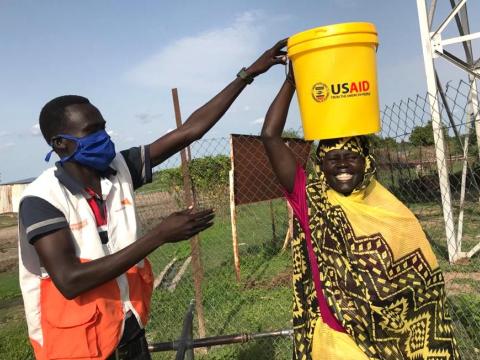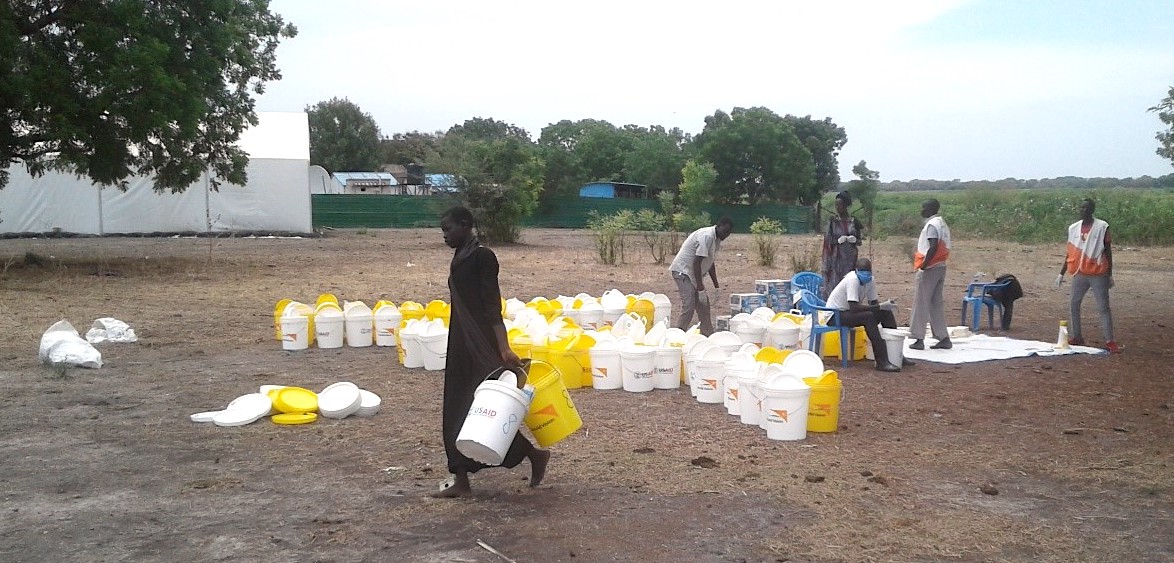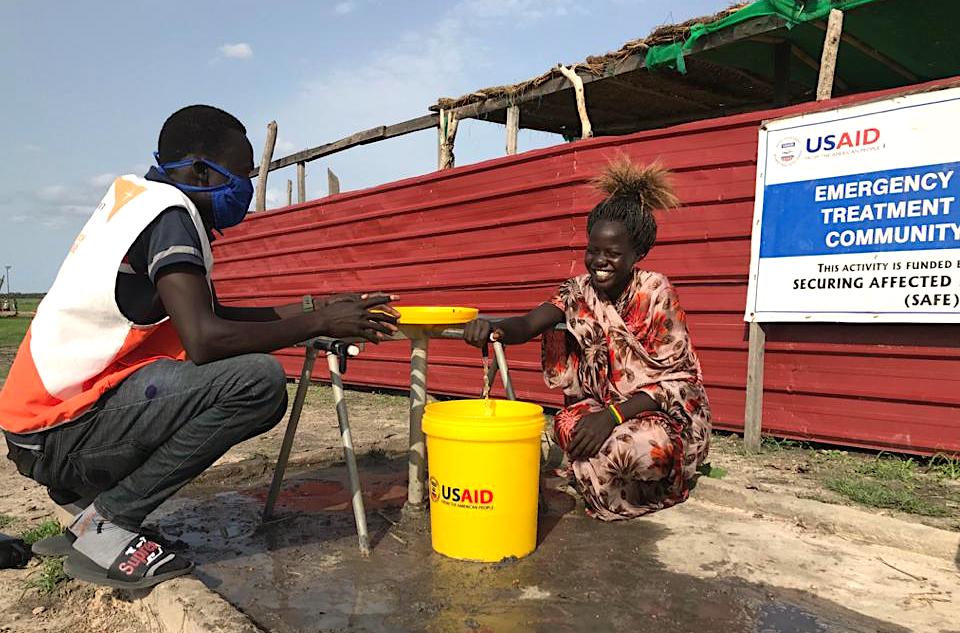Clean water from USAID-funded R-Life Project helps protect 66K people from COVID-19 in South Sudan

“I am relieved that when the COVID-19 pandemic impacted South Sudan, the people in Kodok town have sufficient water for handwashing”, says Ismail Nyikay, World Vision’s WASH Officer. He added that the latrines constructed for 70 households since the outbreak of coronavirus minimized the crowds at the public toilets.
The Restoring Lives of Affected Communities (R-LIFE) Project funded by the USAID’s Office of Foreign Disaster Assistance (OFDA) is a multi-sectoral project focused on providing lifesaving interventions to communities in South Sudan’s Fashoda County, home to an estimated 36,000 people.
Video: Happiness is having clean drinking water for good health

The project supports the most disadvantaged communities on water, sanitation, and hygiene services. In these very challenging times like the COVID-19 pandemic, the provision of clean and safe water is critical to help communities fight the pandemic.
Changing people’s cultural beliefs like handshakes is a big challenge. But the communities are beginning to understand the importance of the measures and practice them. The team’s commitment is to work hard to keep the people, especially the children, safe.
The hygiene promotion awareness campaign in the communities and nearby Manyo County has integrated the COVID-19 prevention measures which included social distancing, hand washing, and the wearing of masks.
Video: South Sudan's women power for food security

The project oversees 20 water supply systems that provide clean and safe water daily to an estimated population of 66,993 people in Fashoda and Manyo counties. Buckets and supply of soap were distributed to enhance the capacity of the community to observe proper hygiene.
Nyikay explains, “Changing people’s cultural beliefs like handshakes is a big challenge. But the communities are beginning to understand the importance of the measures and practice them. The team’s commitment is to work hard to keep the people, especially the children, safe.”
Considering the gap of information about the pandemic, the water, sanitation, and hygiene (WASH) team trained the hygiene promoters to include the measures in their weekly hygiene promotion sessions and household visits. COVID-19 posters and banners were also spread around public areas.
Video: Clean water: A future leader's wish

After weeks of the campaign, the efforts are starting to bear fruits as traditional practices like shaking of hands as a way of greeting gradually stopped. People realized they need to help themselves, especially that the counties are close to Sudan’s border where entry points have limited control measures if any.
Though remote and isolated, the people’s way of life in Fashoda and Mayo has dramatically changed and the effect of the pandemic is still felt, making people worry about the future. The R-LIFE project aims to bring about behavioral changes and awareness on these new realities, helping people learn to live with this new challenge without complicating the already strained capacities in coping up with the pandemic.

Story by Brighton Mapiye, Project Manager I Photos by Ismail Nyikay, WASH Officer and Kodok team